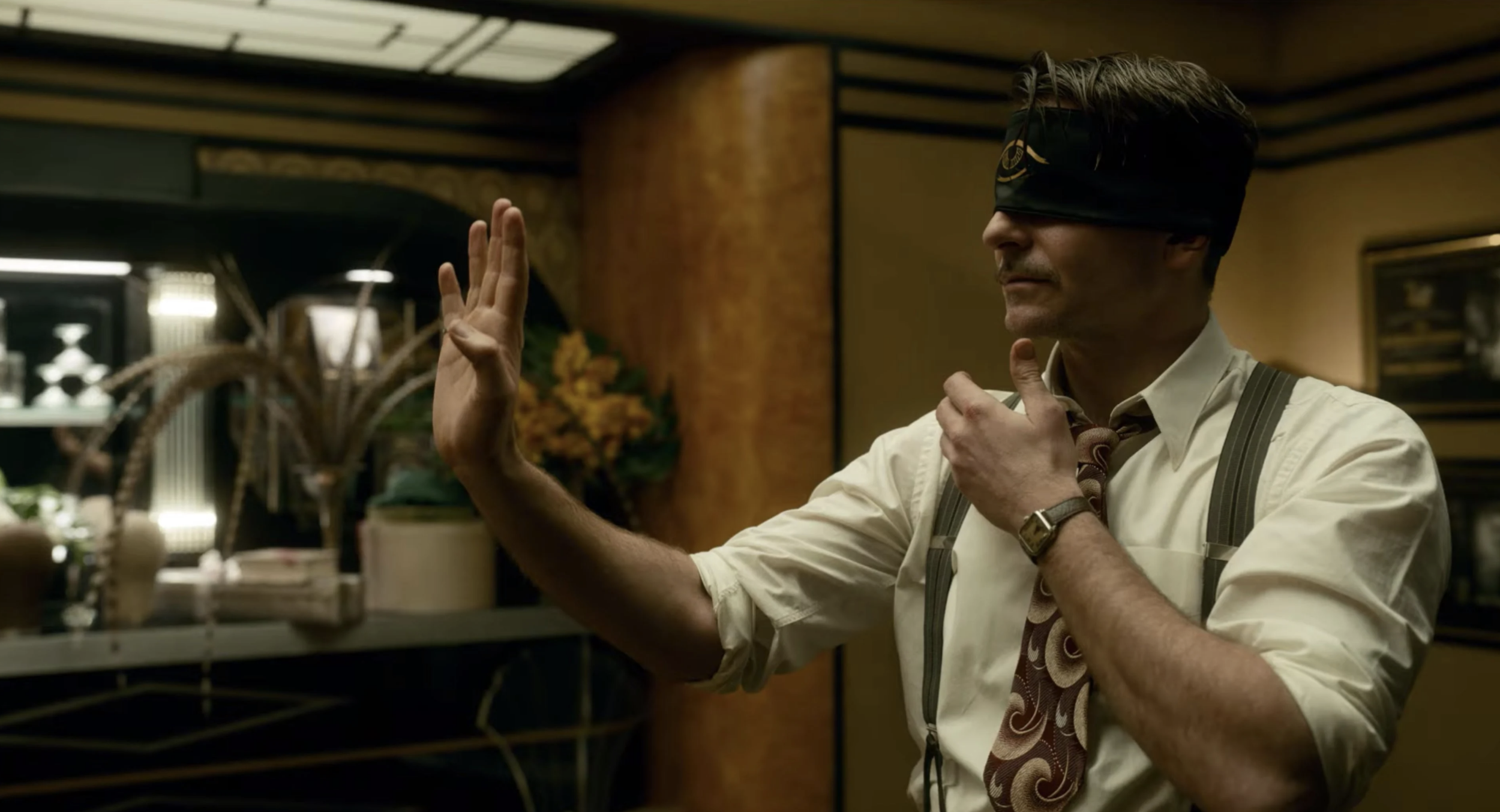‘Nightmare Alley’ Film Review
by Will Lindus
Guillermo del Toro’s first feature film since his Best Picture win for THE SHAPE OF WATER in 2018 was always going to have lofty expectations hoisted upon it. For a filmmaker known for his blend of mythological fantasy and gothic horror, would the prestige of Oscar shift him away from his roots? Or would it allow him a blank check for a passion project within the realm of ‘genre film?’
The answer is yes… and yes.
A modern remake of William Lindsey Gresham’s 1946 novel NIGHTMARE ALLEY has long been in the works for Guillermo del Toro, who received the book as a gift from Ron Perlman in the early ‘90s. Aware of the 1947 film of the same name by Edmund Goulding, del Toro announced production on his adaptation of the novel immediately following his successful launch of THE SHAPE OF WATER. With his clout as both a producer and a director rising steadily over the years, del Toro was able to pursue this passion project with mostly no obstacles - save for a few pandemic related delays.
That said, NIGHTMARE Alley is the first of del Toro’s major works to feature a lack of supernatural elements, a departure in material that does little to hamper the stamp that del Toro puts on his work. While NIGHTMARE ALLEY contains no ghosts, ghouls, or hypersexual sea creatures, it does explore the darkness and monstrosity of men, specifically those who prey on the gullibility of others. The film follows Stan Carlisle, a conman and grifter played with slick ease by Bradley Cooper, who finds himself linking up with a carnival first as a carnie, then as a mentalist. As he becomes more and more adept at using his mentalism to fleece audiences, he begins to take on riskier and riskier clientele, all while being aided by a psychologist (Cate Blanchett) with plans of her own.
Guillermo del Toro drapes every scene in angular shadows and golden-brown tints, creating a superficial grime that both sets the mood and reflects the stained intentions of Carlisle. This is del Toro tapping the rich vein of cinematic noir language and repurposing it for this seedy tale of the rise and fall of a grifter. There will likely be an audience who feels underwhelmed by this film through misclassifying it; del Toro still gets lumped in with horror filmmakers because his films brush against the genre, but as with the gothic romance of CRIMSON PEAK and the fantasy romance of THE SHAPE OF WATER, del Toro is more interested in how the darkness within man makes us tick than in how that darkness might terrify us.
NIGHTMARE ALLEY feels its run time, perhaps slightly overstaying its welcome by the time it reaches its inevitable conclusion, and while the cast all deliver solid performances, some of the more interesting players (Toni Colette and Rooney Mara come to mind) have roles that, while vital to the story, feel a bit underdeveloped.
Still, NIGHTMARE ALLEY is another worthy entry into the filmography of Guillermo del Toro, and represents a leap for the filmmaker, proving he can move beyond his own boundaries while still staying true to the elements which make him one of the modern greats.
4 out of 5 Bear Paws


